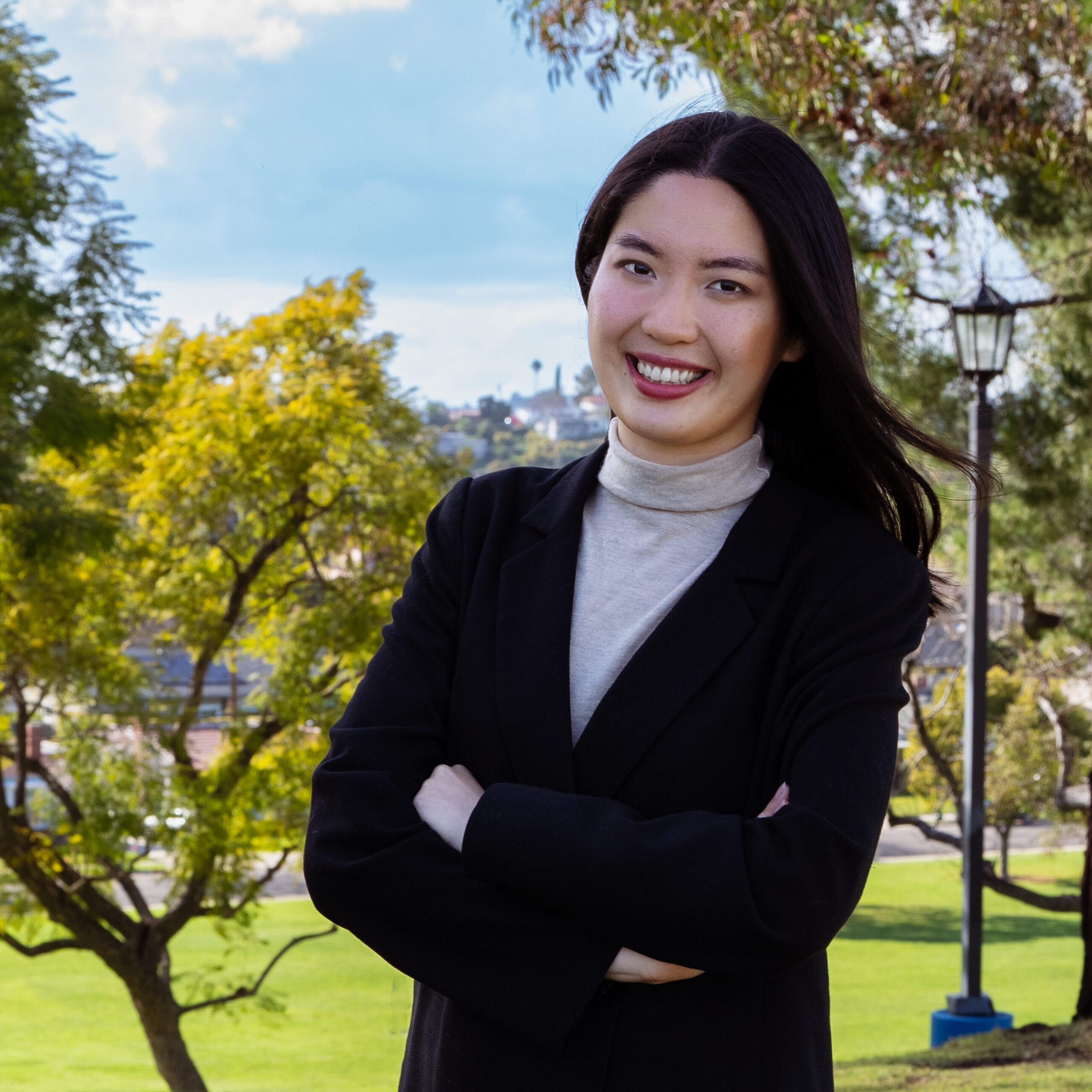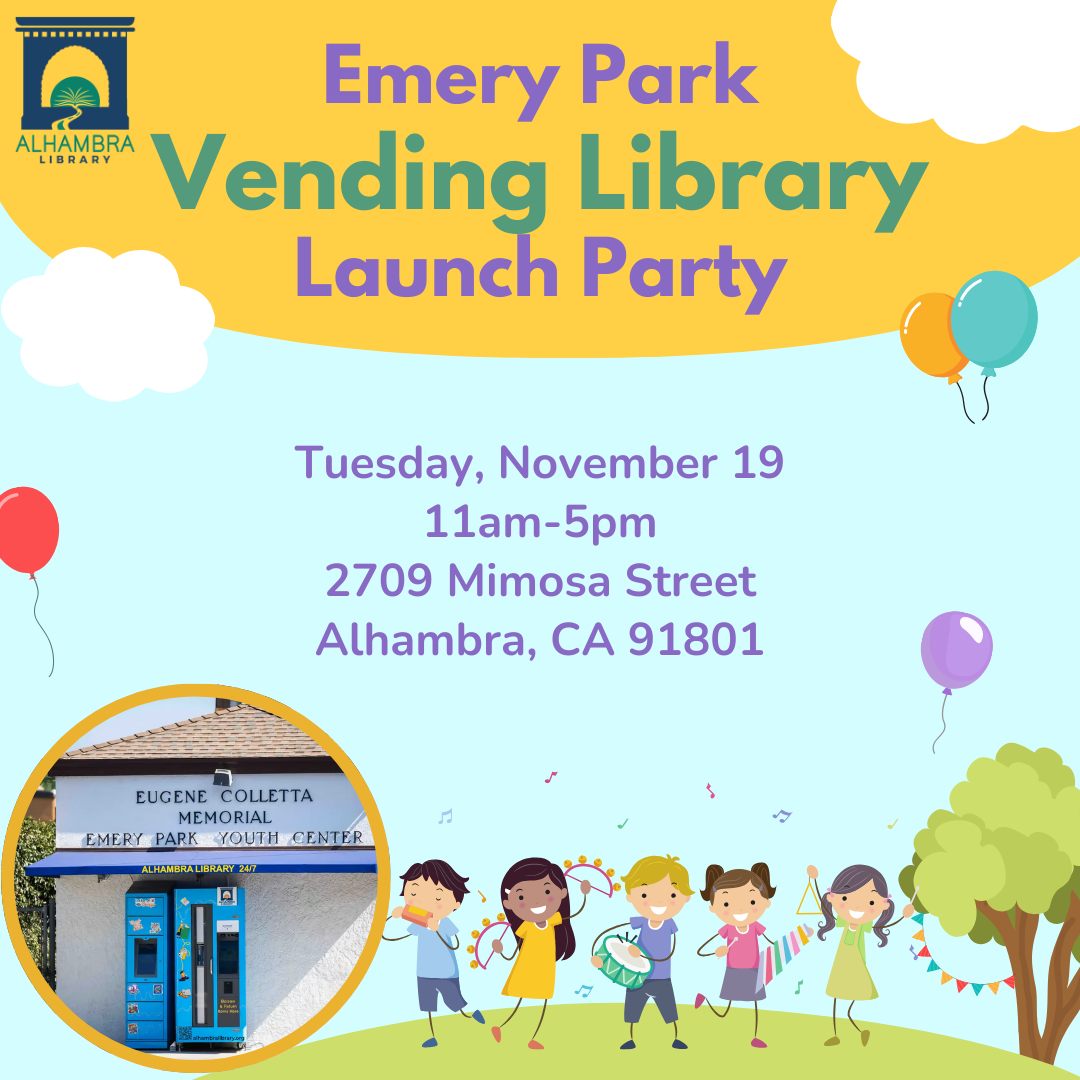Election Day is Tuesday, November 5. Read our interviews with Karsen Luthi here; Noya Wang here; and Je-Show Yang here.
AA: Can you start by telling us about yourself and what motivated you to run for city council?
Chan: Yeah, so what made me want to run for City Council was because I’ve heard my neighbors talk about how they felt unheard and unseen for like an extremely long time. I’m the only candidate who was born and raised here in District Four, privileged enough because my parents are first time home buyers. They chose to purchase a home in this beautiful, beautiful city of Alhambra.
They love the school district, they love the Asian American culture, and how everything is just extremely convenient. Growing up here, my mom went to a lot of neighborhood watch meetings, a lot of community meetings. I also got to know my neighbors, who were World War II veterans.
As time went on, they were telling me about how the City of Alhambra really lacks transparency. Such as developments that were happening in Alhambra that weren’t really communicated towards these neighbors. They started asking all these questions, like “how come the trash can services were being contracted out?” Just really basic day to day questions [that] residents deserve to have an answer for from the city.
And that’s why I want to bring to City Council transparency and just a pathway for these community members to advocate for themselves.
AA: Do you have any plans on how to address that? How do you intend to involve residents in decision making processes and make sure their voices are heard?
Chan: Yes, this is the realm where I’m very creative, very open to ideas and suggestions. If elected to City Council, I plan to host monthly community meetings about any sort of topic. Just really being an active listener, putting myself out there in the community within District Four, and listening to what residents want and also giving them space for them to feel heard and feel seen. And it’s definitely going to be a gradual process.
It’s about letting them know how they can get involved in each step in the process. Like, here are the next steps on what you can do once it’s an item on the city council meeting agenda. Here’s how to submit a public comment. I know this works because I’ve attended city council meetings myself as a constituent of Alhambra.
I think as long as the community members know how to advocate for themselves and have those tools in their toolkit, it will make them feel more empowered and make them feel like access to government and access to an elected official.
AA: Can you tell us about your professional experience and your background in public service?
Chan: Currently I’m a public servant working as a district caseworker for Los Angeles, for the City of Los Angeles Council District One, in Eunisses Hernandez’s office. Being a public servant and being in this unique role has really put me front and center with actively speaking with constituents, either walking through the field or in person at community meetings.
I have been politically involved with the California Democratic Party since 2020. I was elected as the California Democratic Party ADEMS election delegate to the state party around that year of 2019 to 2021. I was elected in March of this year to the Democratic LA County Central Committee, where I’m a delegate now.
AA: What’s the most pressing issue that you see facing Alhambra right now?
Chan: The most pressing issue is definitely housing. Housing is something that a lot of people have been upset about because a lot of neighbors wholeheartedly disagree with the housing that’s being built right now.
Yes, people understand we’re in a housing crisis. We need to build more with the land that we have right now, but the issue is that the housing that’s being built is luxury and market rate housing. And in reality, these housing units won’t house their family members, their son, their sons, their daughters, their kids, their grandkids.
Community members around my age who grew up here in Alhambra would love to purchase a home, but they can’t purchase a home here because houses are going for over a million dollars. And it’s like, great, this is the community that raised them and now they’ll unfortunately be displaced.
There’s so many angles on how to resolve this, but I think the most immediate is definitely supporting those who want to purchase a home and having a more streamlined pathway for them to do so. And secondly, continue to protect those who are housed and continue to have them stay housed in the city of Alhambra.
AA: What is your stance on public safety in our community?
Chan: Our police are doing too much and have too much on their plate. Their jobs are currently spread thin by focusing on retail theft and homelessness to the extent that they end up ignoring the actual public safety issues that Alhambrans care about: violent crime and car thefts. I don’t think that the solution to this is hiring more police officers, in the hopes that eventually they’re gonna address pressing issues though. That could end up negatively impacting our city budget and wouldn’t even guarantee that the police would focus on carjacking or stealing catalytic converters. We need to equip police and communities with the tools to keep them safe. I believe that we need better solutions to preventing retail theft; partnering with nonprofits with social workers and case managers to give them more jurisdiction and oversight on addressing homelessness; and reallocating police budgets into prioritizing violent crime and car theft.
Many Alhambra residents know that the police here are prioritizing retail theft over our actual safety, want to see preventative solutions so we don’t have violent crime in the first place, and want to be able to trust their neighbors. That’s what I’m promising and the vision that I want to bring to city council.
AA: How do you propose to make our city more environmentally friendly?
Chan: I was the president of the Alhambra Environmental and Sustainability Commission for over three years. I was part of the commission that directed the consultant on “Sustain Alhambra,” single-use plastics ban, phasing out gas-powered gardening equipment, and the Alhambra Tree Ordinance. I also created the Greening the Greeks program at UCLA, so I have a lot of experience when it comes to environmental issues and sustainability policy.
Some of what I want to do in my first term is to focus on building upon the successes of Sustain Alhambra and move into developing a Climate Action and Adaptation Plan; improve the Alhambra Tree Ordinance; and creating more cooling centers. Starting with the Climate Action and Adaptation Plan, I want to analyze and put on the record what Alhambra’s current emissions are, open up the question to the public, and work with them to co-write policies around Building Electrification, Community Choice Energy, emissions standards, green buffer zones, incorporating retrofitting and insulation into the Alhambra Housing Element, and more.
AA: What improvements do you think are necessary for our city’s transportation system and aging infrastructure?
Chan: At the end of the day, the main issue with Alhambra’s public transportation system is that it doesn’t operate enough. We cease services after 6 pm, don’t have consistent and connecting bus routes, don’t have protected bike lanes or paved walkable sidewalks, and need to work on improving that. Many Alhambra residents are afraid to let their kids walk to school because they’re worried about pedestrian safety. Many Alhambra residents rely on their cars because we don’t have reliable public transportation despite bordering the city of Los Angeles, where there’s a semi-reliable metro system and frequent bus routes and trains. Many Alhambra seniors that want to get from place to place but can’t drive anymore or Alhambra students that can’t drive at all have to rely on walking from place to place. There are Alhambra residents that want to ride their bike to get to work but can’t due to the lack of any bicycle infrastructure.
All of this needs to change. I recognize that transportation plans and improvements can’t be done in a year or even a single term. But we can’t let the fear of a daunting task prevent us from taking any action. We need to work with transportation activists and experts on establishing protected bike lanes; paving streets and fixing sidewalks (even if it’ll take 2-3 years); and working with LA Metro and surrounding cities on a public transportation plan to ensure we have access and coverage across the city.





